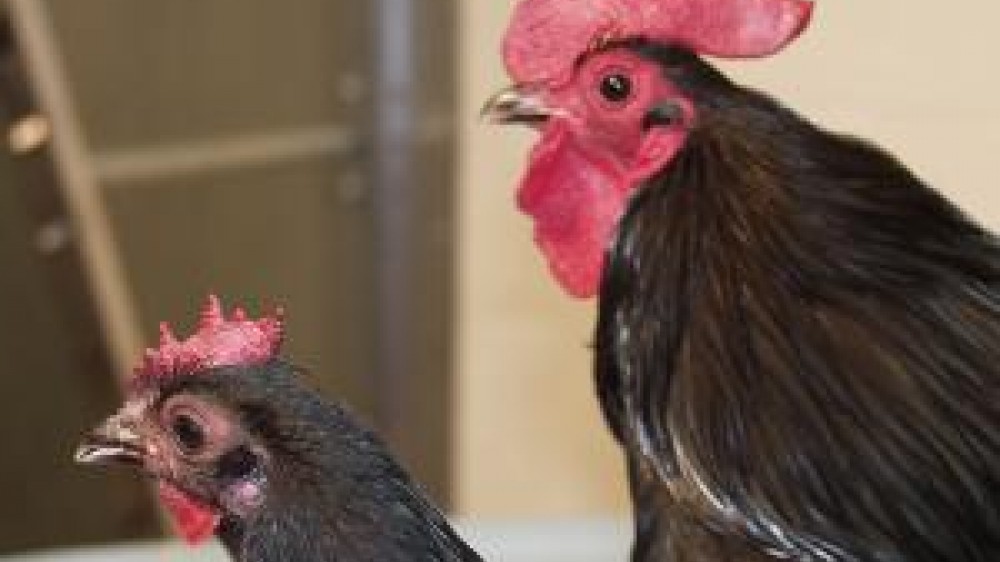£2.7m awarded to nine new project grants

The latest project grant funding from the NC3Rs includes two awards focusing on applying the 3Rs to poultry research.
The first award to Dr Andrew Broadbent at the Pirbright Institute aims to establish a chicken primary B cell culture model to study the pathogenesis of immunosuppressive B cell-tropic viruses replacing the use of infection studies in live birds. The second award to Dr Alasdair Nisbet, Moredun Research Institute, focuses on reducing the number of hens used in the efficacy testing of vaccines against poultry red mites.
Other awards made include a grant to reduce the numbers of mice used with the new genome editing tools that are being rapidly adopted by many research groups. Following CRISPR/Cas9 microinjection into mouse zygotes, the founders generated are often genetically mosaic, requiring extensive breeding to ensure transmission of the desired allele, and precluding the phenotyping of the founder generation. The award to Dr Benjamin Davies at the University of Oxford aims to eliminate mosaicism by confining the Cas9 nuclease activity to the one-cell stage.
Dr Vicky Robinson, Chief Executive of the NC3Rs, said: "As always we are funding a diverse range of great projects which will impact on the 3Rs. Some of the projects focus on relatively niche areas of research such as studies in wild wood mice whilst others, such as identifying clinically effective analgesic regimens for lab rodents, will have wide applicability. In either case, we will work with the scientists we fund to ensure the 3Rs potential of their science is maximised to benefit as many animals as possible.”
Project grants awarded in the 2017 competition:
- A chicken primary B cell culture model to study the pathogenesis and improve the control of immunosuppressive viruses of poultry – Dr Andrew Broadbent, The Pirbright Institute (£349,071)
- Ex vivo model for the study of epicardium-targeted therapies – Dr Paola Campagnolo, University of Surrey (£192,952)
- A comprehensive in silico approach to measure spatio-temporal changes of bone tissue in mouse models of osteoporosis and osteoarthritis – Dr Enrico Dall'Ara, University of Sheffield (£357,401)
- Reducing the animal cost of CRISPR/Cas9 mutagenesis – Dr Benjamin Davies, University of Oxford (£341,783)
- Replacing liver cancer models by modeling human liver cancer in vitro - Dr Meritxell Huch, University of Cambridge (£221,496)
- Development, validation and application of enhanced-welfare technology for wild small mammal research – Dr Sarah Knowles, Royal Veterinary College (£230,171)
- Identifying more clinically effective analgesic regimens and potential strain differences in pain perception in mice using a novel Operant Pain Assay – Dr Matthew Leach, Newcastle University (£298,814)
- A technique to test novel methods of controlling poultry red mite in hens without performing field-scale trials – Dr Alasdair Nisbet, Moredun Research Institute (£452,266)
- Quantifying the potential of skin swabbing as a refinement for DNA sampling of laboratory fish – Dr William Norton, University of Leicester (£258,803)
